Alright, confession time. Who here has ever dreaded seeing their name on the USTA draw sheet, only to imagine walking off the court a bagel short of respect? No, just me? Maybe you don’t get nervous, but I’ve definitely had moments—shoes squeaking, knees rattling—worrying not just about losing, but losing badly. You know what I mean. Not the “oh, that was a close match, let’s grab lunch” kind of loss. The type where you end up counting the games you won on one hand….using only your fingers.
For senior tennis players, the fear hits different. It’s not just about pride. There’s this deeper itch in the back of your mind that whispers, “What if this means something bigger? What if people start to see you differently?” Let’s strip away the usual tennis clichés and talk about what’s really going on underneath that panic—the kind you don’t talk about while waiting for your free T-shirt and mini banana at the tournament table.
Understanding the Deeper Fear of Losing Badly
So why does a lopsided loss sting so much, especially when your knees have more stories than an old tennis net? Losing is annoying at any age, but senior players tie a lot more to those results. It’s not just about points or rankings. It’s about pride, age, and, yes, a little bit of who you are.
The real story isn’t about the numbers on the scoreboard. It’s the stuff simmering under the surface—the flash of embarrassment, the fear of fading into the background, and worrying you’re one step closer to “pickled” than pick-up game champion. Let’s break down the heavy hitters.
Emotional Reactions: Beyond the Scoreboard
Picture yourself walking off the court after a 6-0, 6-1 loss. Your racket feels heavier, your shirt sticks in new places, and your mind replays the worst moments like a broken record. The feeling of shame? Oh, it’s there, no doubt. Even if you joke about “just being out for some exercise” (ha), deep down, something hurts.
Self-doubt creeps in like a cold draft under the door. You wonder if everyone noticed. Maybe your doubles partner will find a better backup next time. The loss grows bigger in your head until it’s not about tennis at all—suddenly it’s about you. Everyone else? Probably busy figuring out where to find the closest coffee. But you? You’re busy thinking about what went wrong, what people think, and if you should sign up for pickleball lessons (don’t do it, not yet).
Fear of Decline: Confronting Aging and Ability
Let’s talk about the elephant lumbering around the court. Aging. Getting older is no picnic. And when you lose badly, those little aches and slower sprints suddenly feel like neon signs blinking “retirement looms.” Maybe that quick footwork is a thing of the past. Or maybe your reflexes are as slow as your old Windows 95 computer.
Losing can stir up the big fears: Am I still good enough for this league? Will I get asked to be on the team again? Does this mean I’m stuck watching from the sidelines? There’s a moment where you wonder if your best days are behind you—if people see you as that “used-to-be” player. The game gets personal, fast.
Impact on Self-Identity and Social Connection
We tennis folks are a stubborn breed. The sport gets tied up in how we see ourselves. For years, you’ve been introduced as “the tennis guy” or “the lady who wins doubles on Sundays.” A few rough losses can rattle that identity.
Then there’s the social stuff. Clubs run on stories—who beat who, who’s moving up, who plays with style—and a big loss feels like a slip down the clubhouse ladder. It’s hard not to worry that you’re losing your place among friends, or that respect is quietly shifting to someone quicker, younger, or, worst of all, wearing brighter shorts.
Facing and Overcoming the Fear: Strategies for Senior Players
If you’re still with me, I’m guessing you’ve felt at least a little of this stuff. It bites, doesn’t it? But here’s where the story gets a rewrite. That sinking fear doesn’t have to win the match. You can actually use it for your next big serve (did you see what I did there?).
Let’s get practical about bouncing back. Because there’s more to tennis than the score. There’s resilience, friendship, and all the reasons you keep coming back for “one more tournament.”
Building Resilience: Lessons from Losses
You don’t need a TED Talk to know this, but I’ll say it anyway: Every loss—especially the ugly ones—is a story you can use.
Take a senior USTA player who lost 0-6, 0-6 (now it’s getting personal) in the semis but came back to win next week because he fixed his grip or finally sliced that backhand low. Losses offer free (except for the tournament fee, gas, meals and hotel room), slightly painful lessons (call it tennis tuition). If you flip the script, you start asking, “What can I try next time?”
Here’s a quick cheat sheet to recover:
- Write down three things you could improve, but also three things you did right (even if one was tying your shoes).
- Talk to opponents. The ones who beat you often share helpful tips (sometimes they’re even nice about it).
- Try a silly goal in your next match—win the first 4 shots battle or see how many serve and volleys you can work into each game.
Focusing on Process, Not Outcome
Results are like the weather—you can worry all you want, but you can’t control them. You can control your work between matches.
Start to track things like how many times you made your first two shots, serve consistency, or even how often you smile between points (yes, it matters). Celebrate improvement, not just wins.
Maybe you lost 1-6, but your serve percentage shot up—or you chased down a lob that would have bounced twice last year. That’s where the real satisfaction lives.
Nurturing a Supportive Tennis Community
The best part of senior tennis isn’t just the rallies. It’s the friends you make sweating through polyester shirts and cheap grip tape.
After a tough loss, don’t duck out with your head down. Stick around. Share a laugh. Most of your fellow players have faced big losses too, and swapping stories (usually starting with, “Well, back in ’92…”) helps everyone feel better.
- Set up a weekly coffee club for post-match wins and losses.
- Offer to help new players warm up or join doubles scrambles.
- Trade tips, jokes, and the occasional bad call (just checking if you’re paying attention).
When everyone supports each other, bad losses become one more shared experience. Hey, maybe next time it’s your turn to win big—or at least tell the best story about your defeat.
Conclusion
Let’s call it like it is: The fear of losing badly on the tennis court isn’t just about the score. It’s about identity, pride, aging, and wanting to stay connected. Sure, a 6-0 loss stings, but it doesn’t define you.
The next time you take a tough loss, remember that everyone—from seasoned champs to rookie racquet-spinners—has been there. Each match is another little adventure, not an audition for “Old Dogs: Tennis Edition.” Shake it off, share a story, and decide you’ll show up again tomorrow. Tennis is a game, but it’s also a club—a group of people who understand the highs, lows, and the beauty of a really ugly loss.
So grab your racket, lace up those lucky shoes (you know the ones), and treat the next “bad” match as one more chapter in your own tennis legend. Who knows? The best story you’ll tell at dinner might start with, “Remember that time I lost 6-0, 6-0…”
Your Turn – Let’s Hear Your Story
If you’ve ever taken a beating on the court, stared at the scoreboard, and wondered if it was time to take up golf — congratulations, you’re officially part of the club. And trust me, we’ve all been there.
I’d love to hear about your moments — the tough losses, the bounce-backs, and the funny ones that only senior tennis players truly understand. Share your story in our Facebook group, Senior Tennis Unpacked Nation. It’s where the post-match therapy happens — minus the $150/hour fee.
And if you’re not already part of the Senior Tennis Unpacked community, subscribe for free today and grab your 3 bonus guides: Up Your Tennis Game, Frustrated to Focus, and Get Fit, Get Strong.
Because losing badly doesn’t define us — but laughing about it together, learning from it, and showing up again? That’s what makes this whole senior tennis thing pretty great.


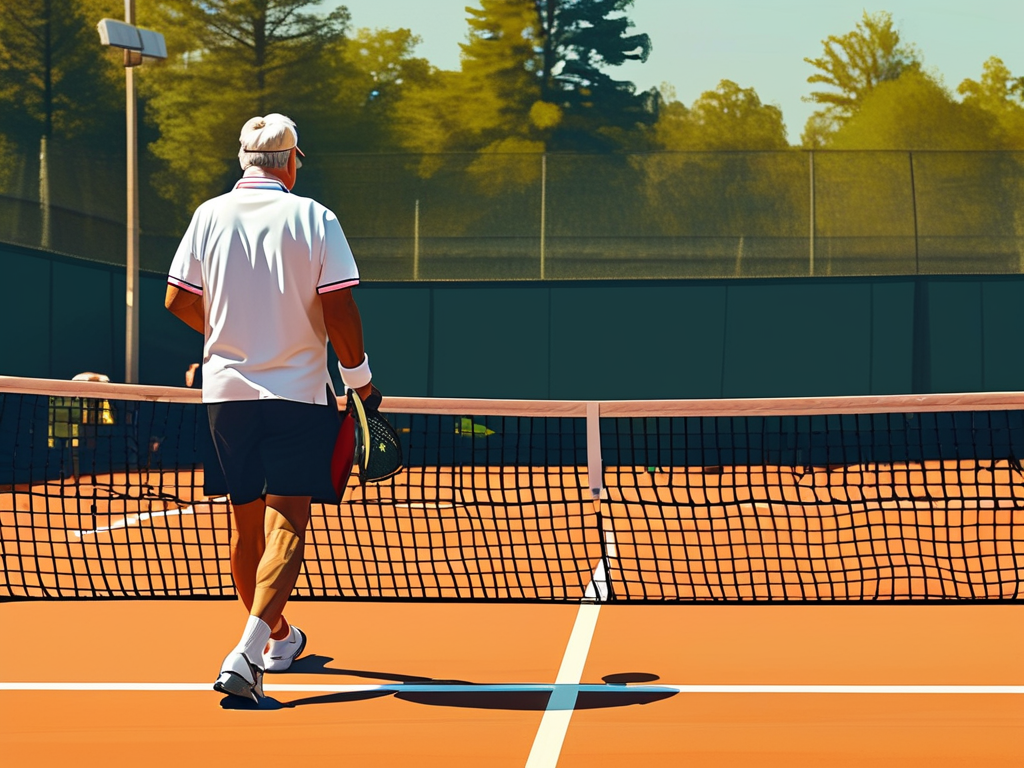
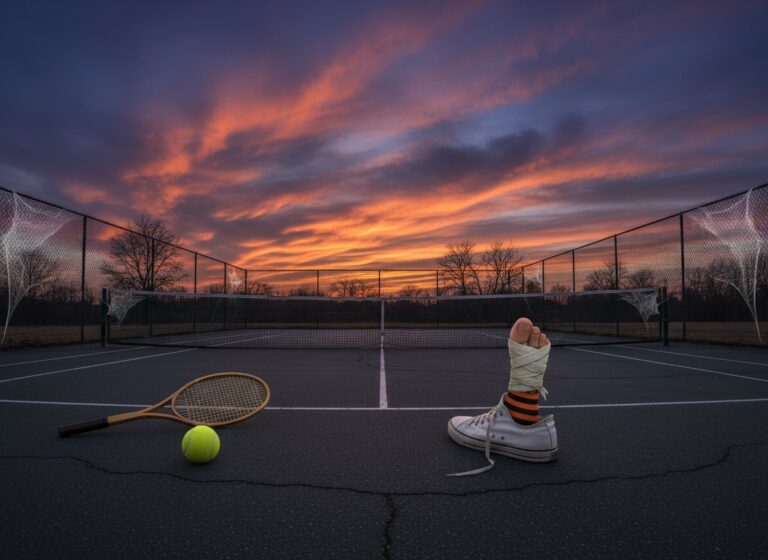
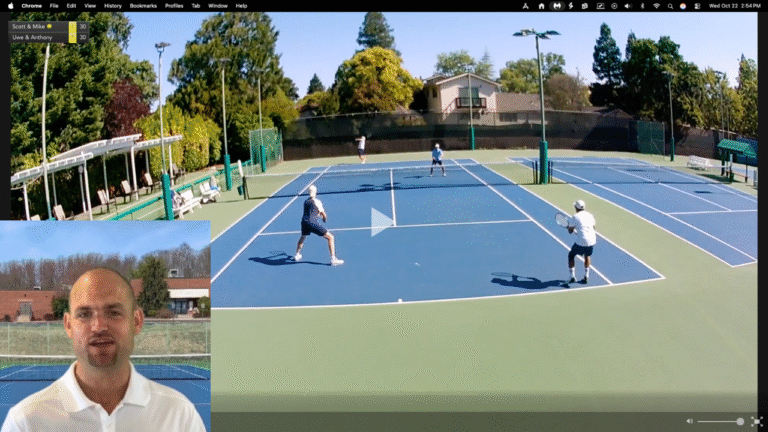
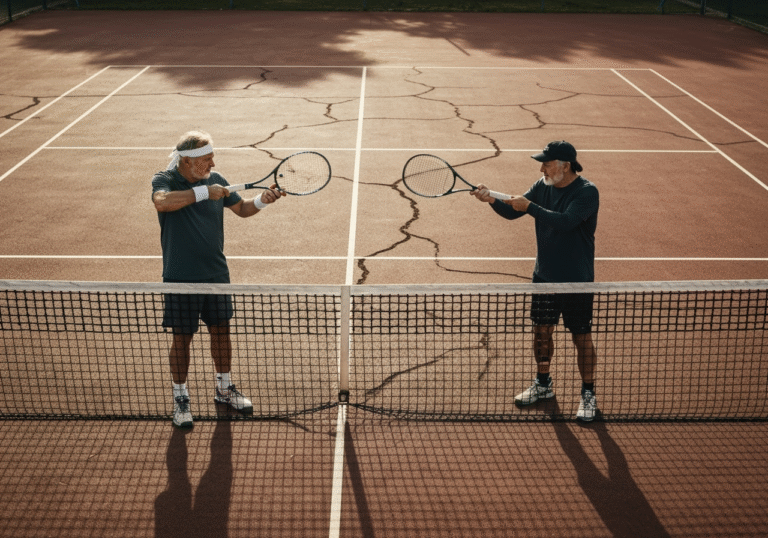
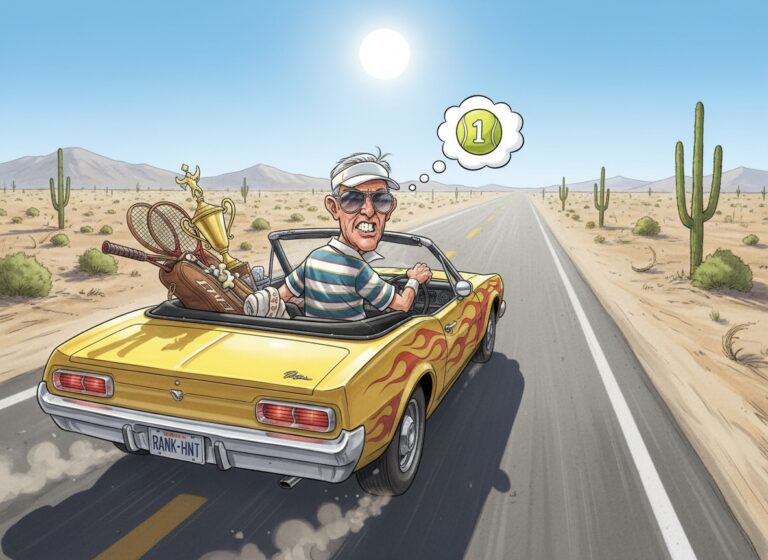
Losing ugly. ughhh! I have been there! It’s a jolt to one’s pride, thinking I’m not as good as I think I am or as I think I should be. I’m just deluding myself. However, no matter how good a player you are (or think you are) there is always someone better than you. Also, even the ugly games you lose (or win for that’s matter) are usually not as bad as you envisioned. Many times one has played their “average game” but the other team was hitting great shots, hitting the lines every time (or so it seems!) etc. Even in those games where you get blown out by an ugly score, I bet you also had some great points and deuce games that you just could not finish. I bet you also made a few great shots too! Savor those times. Tennis is a great game and believe it or not, if you are able to stay healthy, you can improve even as you get older! See you out on the courts! Bob
Exactly, Bob. Even in the ugliest losses, there are always a few great points hiding in there somewhere. Staying in the game — and laughing about it — is half the battle!